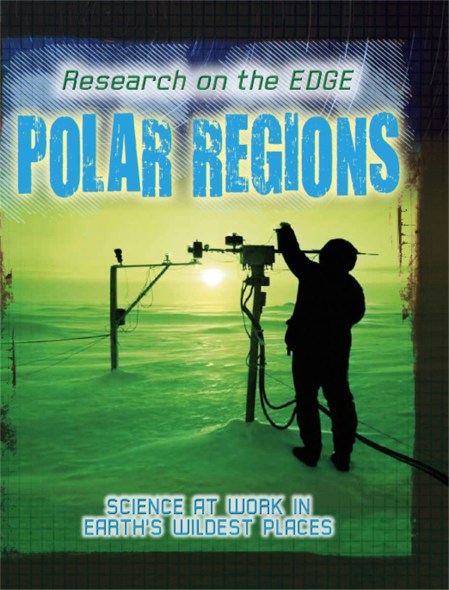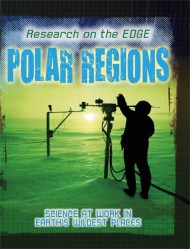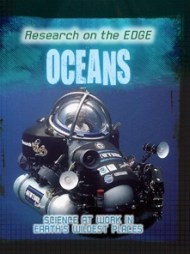Research on the Edge: Polar Regions
On sale
13th February 2014
Price: £12.99
Can you imagine living and working at the North or South pole? It’s the reality for some scientists, who inhabit laboratories in the frozen wastes of the Arctic or Antarctic.
Research on the Edge – Polar Lab is a gripping look at the daily lives of these scientists, and the vital research they carry out in extreme conditions.
Discover the difficulties of setting up a polar lab and the challenges of supplying equipment and necessities to the workers.
Children can read about the conditions scientists live in, from where they sleep to how they keep warm, and some of the dangers they must avoid.
Explore how research conducted under in polar lands can help with conservation, increase our understanding of climate change, and expand our knowledge of polar life, biodiversity and habitats. It can reveal untapped resources, and unknown eco-systems.
Learn about the incredible technology that enables the scientists to live and work in dangerous conditions and the transport they use to travel around the poles. See how they attempt to live with as little impact on their environment as possible.
Discover how scientists manage their data, and publish it in journals around the world, and see how their findings can affect the way we do things in our everyday lives.
Find out about the international science community - where and why cutting-edge research is carried out, how it is paid for, and who owns the results.
‘Danger’ panels highlight some of the perils scientists face, while ‘Cutting edge’ panels detail the latest technology.
Research on the Edge – Polar Lab is ideal for children age 9+, for geography and science projects, or simply as a great leisure read.
Polar lands are not the only places where scientists work in extreme conditions. Try reading about the Rainforest Lab, the Space Lab and the Ocean Lab.
Research on the Edge – Polar Lab is a gripping look at the daily lives of these scientists, and the vital research they carry out in extreme conditions.
Discover the difficulties of setting up a polar lab and the challenges of supplying equipment and necessities to the workers.
Children can read about the conditions scientists live in, from where they sleep to how they keep warm, and some of the dangers they must avoid.
Explore how research conducted under in polar lands can help with conservation, increase our understanding of climate change, and expand our knowledge of polar life, biodiversity and habitats. It can reveal untapped resources, and unknown eco-systems.
Learn about the incredible technology that enables the scientists to live and work in dangerous conditions and the transport they use to travel around the poles. See how they attempt to live with as little impact on their environment as possible.
Discover how scientists manage their data, and publish it in journals around the world, and see how their findings can affect the way we do things in our everyday lives.
Find out about the international science community - where and why cutting-edge research is carried out, how it is paid for, and who owns the results.
‘Danger’ panels highlight some of the perils scientists face, while ‘Cutting edge’ panels detail the latest technology.
Research on the Edge – Polar Lab is ideal for children age 9+, for geography and science projects, or simply as a great leisure read.
Polar lands are not the only places where scientists work in extreme conditions. Try reading about the Rainforest Lab, the Space Lab and the Ocean Lab.
Newsletter Signup
By clicking ‘Sign Up,’ I acknowledge that I have read and agree to Hachette Book Group’s Privacy Policy and Terms of Use
Reviews
This book give us a brief glimpse into this vital work and the dangers the scientists meet.





